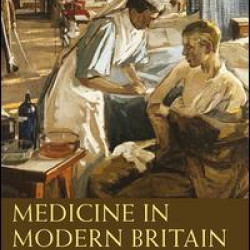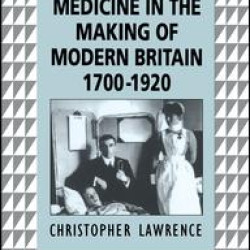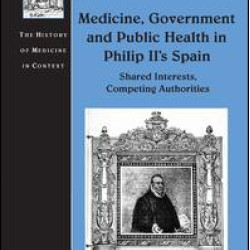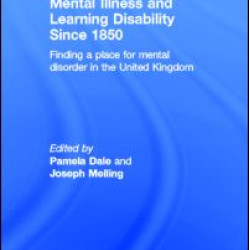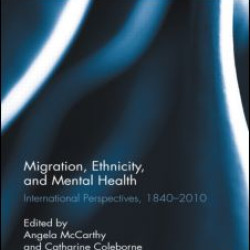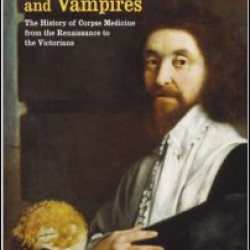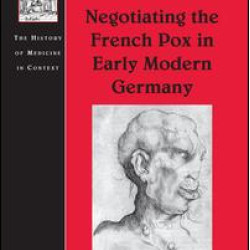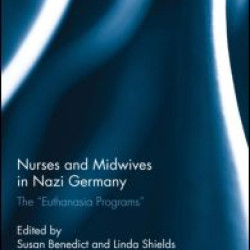History of Medicine
Brand: Taylor & Francis
Model: Stock
Medicine in Modern Britain 1780–1950 provides an introduction to the development of medicine in Britain from the end of the early modern period and through modern times. It is essential reading for students of the history of medicine in Britian...
₹1,835.27 ₹2,294.08
Brand: Taylor & Francis
Model: Stock
Christopher Lawrence's critical overview of the way medicine has developed in Britain over the last two centuries is the first short synoptic analysis of the clinical encounter...
₹8,078.40 ₹10,098.00
Brand: Taylor & Francis
Model: Stock
Bridging the gap between histories of medicine and political/institutional histories of the early modern crown, this book explores the relationship between one of the most highly bureaucratic regimes in early modern Europe, Spain, and crown interest in and regulation of medical practices. Complement..
₹3,083.74 ₹3,854.68
Brand: Taylor & Francis
Model: Stock
Bridging the gap between histories of medicine and political/institutional histories of the early modern crown, this book explores the relationship between one of the most highly bureaucratic regimes in early modern Europe, Spain, and crown interest in and regulation of medical practices. Complement..
₹8,812.80 ₹11,016.00
Brand: Taylor & Francis
Model: 9780415514132
Taking forward the debate on the role of institutions for treating and incarcerating the insane, this volume challenges recent scholarship and focuses on a wide range of factors impacting on the care and confinement of the insane since 1850...
₹2,643.10 ₹3,303.88
Brand: Taylor & Francis
Model: Stock
Questioning many conventional historical assumptions, this text seeks to provide a better understanding of the effect on midwives of the unprecedented progress of science, particularly obstetric science in the 20th century...
₹2,643.10 ₹3,303.88
Brand: Taylor & Francis
Model: Stock
This international edited collection examines the links between mental health and migration. In particular, it investigates the difficulties that migrants underwent in adjustment abroad through a focus on migrants and mobile peoples, issues of ethnicity, and the impact of migration on the mental hea..
₹8,812.80 ₹11,016.00
Brand: Taylor & Francis
Model: Stock
Mummies, Cannibals and Vampires charts in vivid detail the largely forgotten history of European corpse medicine, which saw kings, ladies, gentlemen, priests and scientists prescribe, swallow or wear human blood, flesh, bone, fat, brains and skin in an attempt to heal themselves of epilepsy, bruisin..
₹2,569.66 ₹3,212.08
Brand: Taylor & Francis
Model: Stock
This book explores the identity of the 'French disease' (or 'Morbus Gallicus') in the German Imperial city of Augsburg between 1495 and 1630. Combing medical, religious, economic, municipal and institutional history this book offers a fascinating insight into how early modern society came to terms w..
₹3,083.74 ₹3,854.68
Brand: Taylor & Francis
Model: Stock
This book explores the identity of the 'French disease' (or 'Morbus Gallicus') in the German Imperial city of Augsburg between 1495 and 1630. Combing medical, religious, economic, municipal and institutional history this book offers a fascinating insight into how early modern society came to terms w..
₹8,812.80 ₹11,016.00
Brand: Taylor & Francis
Model: Stock
Beginning in the late 1930s, the National Socialism government of Germany began a program of killing individuals with mental or physical disabilities. Six "killing centres" were established. By August 1941, knowledge of the killings had spread to the general public and Hitler called for the program ..
₹8,812.80 ₹11,016.00
Brand: Taylor & Francis
Model: Stock
This book discusses the significance of oral history to the development of health and welfare provisions. By focusing on individual experiences, the human dimensions of the history of medicine are explored...
₹2,643.10 ₹3,303.88


